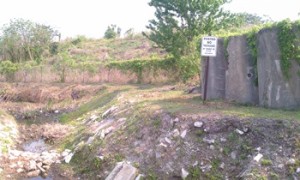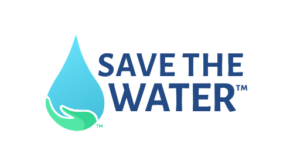
By Taylor Schaefer, Writing Project Leader for Save The Water™ | April 6, 2015
Imagine if your backyard was a dumping ground for toxic materials, endangering your children’s safety and threatening the health of you and your family members. For many in the town of Bithlo, Florida, this is a real-life nightmare. For years, Bithlo residents have had to live with a tainted water supply, causing a multitude of issues throughout the community. Due to the local government’s complacent actions towards this long-running issue, residents have lost trust in the government and wish to remain independent of its rules and mandates involving public water. Recognizing the urgency of this issue, local organizations have come together in order to rejuvenate the community in more ways than one.
Over 8,000 Bithlo residents have been without clean water for decades due to the exploitation of the area. Companies used Bithlo as a dumping ground for dangerous chemicals including arsenic, mercury, chloromethane, and trihalomethane. Among the perpetrators, a previously owned property of A-Z Recycling has become the most notable symbol for pollution in Bithlo. Numerous studies and documents found that the area is unsafe because of the asbestos-laden material left behind by the recycling company. The property was a sinkhole and the extent of the pollution prior to the fill-in is unknown. Adding to this, Circle K deposited large amounts of petroleum, contaminating the groundwater and off-site wells in the late 1980s.
While people living in the surrounding area continue to acquire health issues, fines and violations for the dumping ground also remain constant. The county has let a $250 fine rise to well over a million dollars. Accumulation of the fines has lead to the largest code-enforcement fines in the history of Central Florida. Due to these high costs combined with a pricey cleanup, prospective buyers and the county have no interest in purchasing or foreclosing the property.
When it seemed like there was no hope left for the town, organizations such as United Global Outreach and UCF’s Engineers Without Borders have joined the Bithlo community in installing a septic tank system and an aquaponic system to promote clean water, food growth, economic growth, and sustainability for the town. With little funding and limited infrastructure, these two groups have been working hard to achieve significant improvement.
I was lucky enough to conduct an interview with Joseph Klawe-Genao, one of the members of the Engineers Without Borders program working on the aquaponics system. Here is what he has to say about the project and the contamination in Bithlo:
Q: Why is this project so important to Bithlo?
A: Bithlo has, historically, remained a food desert – the citizens have had difficulty cultivating affordable and nutritious food at any point in time since the community was established. Since Bithlo became an unincorporated town in the mid-1900s, the citizens have also remained in a recurring, generational “loop” of subpar health practices and education. The Bithlo Project will not only feed the surrounding community, but it will serve as an example of a way to grow nutritious food year round. While growing food and educating the local community, namely the children of the nearby academy, the project will help break the “loop” of generational poor health and bring Bithlo back on its feet. In addition to the local benefits, we are looking to make Bithlo the example of a community successfully using an aquaponics system, so that other communities can rely on this project for similar projects they have in mind.
Q: What are the most notable issues concerning Bithlo’s water supply?
A: A series of neglect to the surrounding land has caused the groundwater supply in Bithlo to become polluted. The petroleum discharge of a Circle K gas station in 1988 and the continuing release of toxic waste at the A-Z Recycling Plant have been identified as point-source pollution in the area. Several of the pollutants found in the water/ground by the gas station is not critical to the health of the population, although some citizens are not able to physiologically process the heavy metals, causing illness. An issue with the recycling plant has been that it is privately owned land. The government and concerned citizens are powerless to do anything about the problem unless the owner agrees to cooperate with officials. Millions of dollars in fines have been issued and the deed has been transferred many times because of that reason.
Q: Are you receiving a lot of support from the community?
A: There has been a great deal of support in the community. Residents often stop by the aquaponics system to take a look and are pleased to see things moving along. A few nearby Bithlo residents have taken part in the build, such as providing information on construction and building code, for example. The only known caveat to this transition has been misplaced distrust in groups attempting to change the way the residents have lived for nearly a century after the community encountered financial troubles. The polluted water and the un-incorporation process left many citizens feeling abandoned. The situation is changing rapidly for the better; bus lines are being planned for Bithlo, the groundwater pollution has been addressed and is being taken care of, the population is expanding and other services, such as medical services and schools, have or are being built to accommodate Bithlo’s citizens.
Q: What exactly is an aquaponics system?
A: An aquaponics system integrates fish cultivation and the growing of plants. The idea is to create a loop, beginning with a few dozen fish (there are many to choose from) who will consume food and create waste. The fish waste will be transferred to grow beds primarily comprised of vegetables that are suited for the climate. Water carrying the nutrients from the fish waste will pass through the plant beds, which float on “rafts” to eliminate dependency on the soil. The water will then make its way back to the fish tanks, cleaned and filtered naturally by the plants. Both the fish and plants can be harvested and consumed. A benefit of an aquaponics system is that it can be created on multiple scales, commercial and individual. Aquaponics systems also allow the consumers to become independent of an outside food source, even in a food desert.
Q: What are some major successes and challenges you have faced during this project?
A: A major success would be the support we have gained from the project over time. Several organizations have supported this project – from Wholesale Foods to the Rotary Club, to UCF – and the support from these organizations have allowed us to make some incredible progress over the past year. A challenge that we had to face would have been the initial build phase for some of the components, such as the steps leading up to the system, where we had to churn out numbers on-site as well as make multiple cuts of materials on hand. We had to overcome unexpected obstacles. Everything turned out well, including the steps, although the process involved the whole team and required much more attention than we initially drafted.

